When people begin to identify themselves with a type of music, particularly if it has an accompanying fashion or lifestyle, they get real exclusionary. I should know, outwardly I have portrayed a "punk rock or fuck you" mentality. Blame my upbringing if you must, not by my parents, but the scene I came up in, and my own superiority complex. This is a front, of course, and is in direct violation of my doctrine of infinite possibilities, and my boss would tan my hide if she thought I was for real. The best stuff is always a conglomeration. Sure, the Ramones are the Platonic Form of punk rock and the best band there will ever be, but they are just a mix of the Beach Boys, girl groups, bubblegum and rock and roll (played louder and faster, duh). So if you say "punk rock only, fuck bubblegum" then you are contradicting yourself, and the web gets more tangled with the more statements or commitments you make, and you'll surely end up liking something you don't want yourself to like. One may identify his illusory self as a punk rocker, and anything that threatens that illusion might be combated. Now, I am a hard-ass for what is good, in my opinion, and if it ain't good in my opinion, it ain't good. But blanket statements are for Republicans, and there is a way, a path, a thread of the good that stretches from it's inception in American blues music all the way to me, and is exemplified in the near 17,000 songs in my iTunes, and in my Meta-Pop band the Headies.
1994 featured the perfect storm for Pop Punk music. First and foremost, Kurt Cobain, the lead singer from Nirvana and main figurehead/proprietor of the Grunge branch of Alternative music, had recently blown his brains out. The Northwest branch of Underground music had gotten huge during the Synth-Pop soaked nineteen eighties and from '88-Cobain's suicide had offered, in conjunction with major American recording labels, especially Geffen (in an attempt to be the 1990's answer to Seymour Stein/Danny Fields Era Sire Records), an "alternative" to the obvio-pop of Michael Jackson. But the caveat was that everybody had to take themselves so seriously that the only way out was suicide. I was a tween before that word existed and had some vague recollection of listening to "Never Mind the Bullocks" on a Fisher Price turntable in the previous decade, knew that that was called "punk rock" and that maybe their was something even better than WMMR playing "Ziggy Stardust" if you were lucky. I knew that I liked WOGL, Oldies 98.1 best of all, specifically "Johnny B. Goode", "Walk Like a Man", "Hang On Sloopy", and "Wild Thing". I knew that there was something these songs were offering that not Nirvana, nor any of their contemporaries, from Seattle or Elsewhere, were not. Something melodious and genital oriented.
Grunge and Alternative was originally played by members of Generation-X, in my estimation those born between 1965 and 1976, children of the Baby Boomers, children of divorce and the cold war and feeling sorry for yourself. But then we all became teenagers and he killed himself and were named Generation Next by Bubblegum heroes the Spice Girls and we needed something that sounded happy but indeed was not. Hence the Pop-Punk boom and everything getting (musically) good for a little while before giving way to Emo (Dashboard Confessional, Thursday, Thrice, Jimmy Eat World), Bro-Core (Limp Bizkit, Korn, Rage Against the Machine), and Nuevo-Pop (Brittany Spears (no offense Brittany!), N*Sync, Christina Aguilara, Backstreet Boys). So, I had found the thread of the good and began the process of doing my homework, following it back as far as it would go and examining every fiber along the way. Easier said than done though. For instance, who do you listen to? Not which bands, but which opinions. Plow United was the best of the best West Chester/Wilmington band ever, and those dudes HATED Rancid, but I sure liked 'em! But Sean's dislike probably backed me off of the street punk sub genre and their mascot Tim Armstrong, just a little bit. Rancid's new album "Let the Dominoes Fall" just came out, or is about to, but I've listened to it five or so times and still can't get a grip on it. They milk their blue-collar image with songs for and about military people, people fighting in Iraq or Afghanistan. The opener is a new Rancid classic, be it on well-worn territory, "East Bay Night" is a 10 out of 10, all there great punk song. I still love Tim's vocals, but I can't believe, as I did on the first three Rancid albums, that he is not completely self-aware of his unique mumble-growl delivery. When I thought he just couldn't help it it worked better. That's the downfall of Rancid. "And Out Come the Wolves..." is the masterpiece and all else pales in comparison to that unaware, all-natural, all-real, can't even tell that their trying punk rock record, which Sean Rule hated. It's gotta be hardest on the true believers. I was talking to Dave Wrighteous the other night, bonafide legend in my eyes, taught me so much about punk rock, and I respect and love him very much. Dave is actually extra-spectacular as a dead in the middle member of Generation X who is a no-nonsense punk rocker and always has been. He was telling me how he saw 1994 as a real downturn in Pop Punk, as his favorite bands put out, in his opinion, their worst albums, citing Mr. T Experience's "Love is Dead" and Ben Weasel's then-new The Riverdales first album. These are, of course to me, two of the best albums of all time and my favorite MTX record! It's that kind of quantum criticism that makes the grey areas so crystal clear and possibility reaffirming.
Perhaps the biggest victim of the Pop Punker's (all of us by the way just figure we are straight up punk rockers and the Pop is implied) cool kidness and pariah inflictability is Ska music. Specifically Third Wave Ska became the grandest scapegoat, the red-headed step child of the punk scene. I guess ska zigged when America's youth zagged, the "Let's Go Bowling" sticker came off Joel Tannenbaum's bass, and Operation Ivy (featuring Tim from Rancid, then Lint, duh) became the only acceptable ska-core to listen to. So, like an asshole, I didn't do my homework. So I didn't know there was a reason that OPIV song is called "Sound System". See, in the beginning, the very beginning of ska music, before their were those kinds of bands in Jamaica, big shot impresarios like Duke Reed and Clement Dodd would utilize giant roving sound systems on trucks for mobile dances playing American R & B singles they had shipped in. In this way Jamaican youth got way hip and into the sounds of Black America. In order to maintain the superiority of their own business, these dudes would hire Rude Boys to go screw up their competitors dances, and these disruptors became known as "Dance Hall Crashers" who would three decades later be featured on the Angus Soundtrack along with the best ever Green Day song, "J.A.R." the prospect of hearing which kept me glued to my radio and WDRE 103.9 Modern Rock all summer long. Anyway, ska is another one of those magnificent conglomerations. These Jamaican hip cats had a great knowledge of R & B and even Modern Jazz due to their Sound System heroes and took what they learned, like the twelve bar blues and boogie bass, and mixed it with the indigenous Mento's off-beat syncopated rhythm guitar and piano, playing it faster and louder, and ska music was born.
In 1962 Jamaica regained it's independence from the U.K. and the Jamaican government used ska as a diplomatic tool to represent it's people. And indeed it was the music of the people, heavily infused with the street-level politics of Jamaica as often as it was about gettin' high on ganja or the rub and squeeze. The people referring in part to the original Rude Boys, which like skinhead, ended up being more than one incarnation of ideals. Jamaican Rude Boys were characteristically out of work and reactionary towards economic tensions, rebel kids who emulated American Hollywood gangster movies with black suits, thin ties, and pork pie hats. It is said that the aggression of the Rude Boys and their dance moves drove ska into a more aggressive less boogie driven area. Ska faded in popularity in its native Jamaica and made way for Rocksteady, which reflected the more polished sounds of American Soul being imported at the time, and then to Reggae, but continued popularity abroad, specifically England, with it's large Jamaican population and a British Youth scene in the 1960's that craved that which was hip. At the end of the next decade ska made a comeback in popularity in England, now infused with the still fresh Punk Rock sound. British Ska became known as Two-Tone, due to the British bands emulation of the black and white Rude Boy style as well as the characteristically multiracial line-ups in the genre's bands, like The Beat, The Selector, The Specials, and Bad Manners. It was during this time period that Ska achieved it's ultimate perfect sound, perhaps only topped by Operation Ivy themselves.
OPIV is probably responsible not only for the Third Wave Ska revival but also Pop Punk's elevation as well. I mean, Chrimpshrine wasn't gonna be the band. the Dead Kennedy's and Black Flag and Minor Threat could never do what OPIV did, pave the way for good clean punk, guaranteed to stick. but really that's just part of the thread. It's interesting how much of an umbrella term punk has become. It's been argued that the only true punk bands would be the CBGB's guys and their British prodigies. And certainly ska happened in the 1960's and was revived in the late seventies and early nineties, due to it's close proximity to the ideals and temperaments of punk rock fans. Tied closely with the two is Mod. Mods in England were many of them ska fans, and the Mod Revival correlated with the Ska revival, but like punk, can you really be Mod if you aren't existing in mid-1960's England? No. Can you really be rock and roll if you aren't existing in the mid 1950's? Probably not either, but that's not really a bad thing. You're something more than any of those, you're a conglomeration. By existing within the Tao of Boogie and fully living and breathing American Blues, R and B, Rock and Roll, Ska, Soul, Girl Groups, British Invasion, Mod, American Garage, Bubblegum, Punk, 2-Tone, Hip Hop, Underground, Pop Punk, and especially the Hyper Pop manifestos of Lady Gaga, you are the new hip, not the what's next, the what's now.
Claudia Boulton
7 years ago


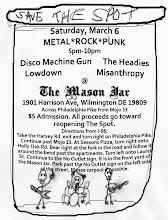

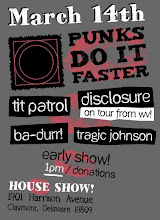
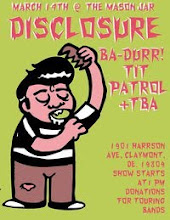
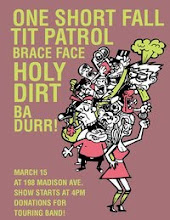

















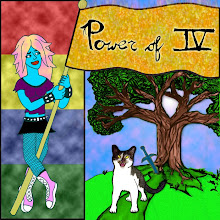










































































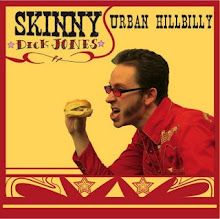




No comments:
Post a Comment